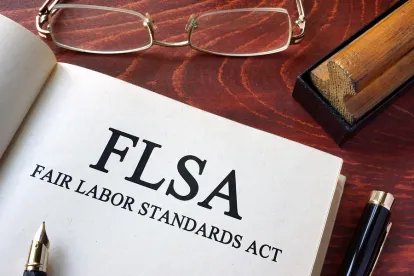On Dec. 6, 2019, the Second Circuit issued a decision in Yu v. Hasaki Restaurant, Inc. that will likely impact settlement of wage and hour actions under the Fair Labor Standards Act (FLSA). In a split decision, the court reversed a district court ruling and held that judicial approval is not required when settling an FLSA claim pursuant to a Federal Rule of Civil Procedure 68(a) offer of judgment.
In this case, the plaintiff filed a complaint alleging FLSA overtime violations. After the complaint was filed, the employer sent the employee a Rule 68(a) offer of judgment for $20,000 plus reasonable attorneys’ fees, and the employee accepted the offer. Thereafter, the parties filed the offer and notice of acceptance of the offer with the district court. Before judgment was entered, however, the district court ordered the parties to submit the settlement agreement to the district court so that the district court could conduct a fairness review and consider judicial approval.
The district court based its determination on the Second Circuit’s 2015 decision in Cheeks v. Freeport Pancake House, Inc., 796 F.3d 199 (2d Cir. 2015). In Cheeks, which was not a settlement pursuant to Rule 68(a) but rather an attempt to dismiss the case (after the parties reached a settlement) by a stipulation of dismissal with prejudice pursuant to Rule 41 (a)(1)(A)(ii), the Second Circuit held that parties could not stipulate to the dismissal of FLSA cases. Instead, the Cheeks court held that the parties must submit the settlement agreement settling the FLSA claims to the presiding judge for review to determine if the settlement is fair and reasonable to the employee or employees. This process prevents the parties from entering into private settlements that can be kept confidential. In issuing its decision, the district court noted that there could be “substantial ground for difference of opinion” and certified its order for interlocutory appeal.
The Second Circuit viewed the question before it as “whether acceptance of a Rule 68(a) offer of judgment that disposes of an FLSA claim in litigation needs to be reviewed by a district court or the DOL for fairness before the clerk of the court can enter the judgment.”
The court first found that although it has been the practice that settlement of FLSA claims requires review by the district court, this procedure is not required by the FLSA. The court stated that “[n]owhere in the text of the current or prior versions of § 216, however, is there a command that FLSA actions cannot be settled or otherwise dismissed without approval from a court.” Second, the court emphasized that settling FLSA claims through Rule 68(a) judgments cannot be considered a private settlement. Rule 68(a) judgments are publicly‐filed, stipulated judgments between parties to an action brought in a court of competent jurisdiction after litigation has been commenced under the FLSA. The court also “acknowledge[d] the similarities” between this case and Cheeks but stated that the FLSA does not require judicial approval of Rule 68 offers of judgment. The court further stated that Rule 68’s requirement that settlements be filed publicly on the docket avoids “any secret settlement problem.” Lastly, the court recognized the FLSA’s “remedial and humanitarian goals,” but stated that the FLSA does not require judicial review of Rule 68(a) offers of judgment settling FLSA claims.
Thus, the court held that “judicial approval is not required of Rule 68(a) offers of judgment settling FLSA claims.”
In light of the unambiguously mandatory command of Rule 68(a) for the clerk of the court to enter offers of judgment when they are accepted, and because we find no indication by Congress or the Supreme Court that the FLSA requires judicial approval of stipulated judgments concerning FLSA claims in the context of ongoing litigation, we decline to pull such a requirement out of thin air with respect to Rule 68(a) offers of judgment settling FLSA claims. Neither amici nor the Dissent has identified a reliable source in the statutory history that demonstrates “the necessary clear expression of congressional intent required to exempt the statute from the operation of Rule 68.”
With this decision, parties in the Second Circuit may be able to settle FLSA cases more easily because the parties will not have to submit their settlement to a court for approval if the case is settled pursuant to an offer of judgment. However, it should be noted that Rule 68 settlements will still need to be filed on the public docket. Moreover, although the court pointedly noted that the “holding in Cheeks was limited to Rule 41(a)(1)(A)(ii) dismissals with prejudice,” the court stated that it was not disturbing the ruling in Cheeks, but “confining” it to stipulations of dismissal with prejudice. Given that the court stated there was no authorization in the FLSA requiring a fairness review of claims under the FLSA, and held that FLSA claims settled pursuant to an offer of judgment do not need to be presented to the court for review, it will likely only be a matter of time before litigants attempt to make private settlements without the need to seek court approval outside of the offer of judgment process.



 />i
/>i

